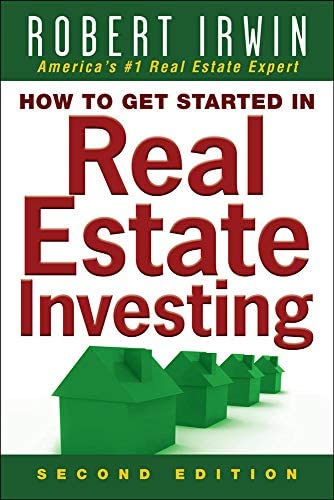
Stocks and real property are both great investment options, but each has its unique advantages and disadvantages. Here are some of the key differences between them: Liquidity. Risks. Location. And Profits. For those looking to create a long-term passive income stream and a steady stream of capital, real estate investment may be the better option. Real estate offers passive income streams as well as the possibility of substantial appreciation. Stocks are, however, subject to market, economic and inflation risks. Buying stocks does not require a large cash injection, but they can be bought and sold easily.
Profits
There are many advantages to investing in real property. For starters, real estate can create cash flow. Cash flow is the money left after expenses are paid. Rental income is a great way to offset expenses and make extra money. Your cash flow will improve the longer you own a property. You can also take advantage of various tax breaks and deductions when you own real estate. These tax breaks allow you to deduct reasonable expenses related both to ownership and operation.
Investing in real property offers the flexibility many investors require. You can gradually build up your portfolio and supplement your income by renting out the rental income. Fix-and-flip income can be used as your primary source of income. You also have the freedom to manage your property according to your own schedule. Plus, you are your own boss. There are no time limits and no salary caps when working in this field.

Risks
When you compare the risks of real estate investing vs stocks, it is important to understand the differences between the two. Real estate is a more stable investment than stocks. Real estate has a lower risk of capital loss because the land you own is collateral for your initial investment. Stocks are much more liquid, which means you can cash out whenever you want. Stocks can also generate income from dividends. However, investors need to be aware of volatility in stock prices as this can affect emotional decisions.
In addition to being higher risk, you will have to wait for your return to see a positive impact. Stocks are able to return 10% annually, but real estate can return three to four percent. However, if you put down at least 20% of the value of the property, you will still be looking at an annual return of 20%, which is far higher than the return you could see from stocks. It can be hard to find good properties and sell them for less money than you paid. A tax penalty could be imposed if your property is sold in a shorter time period than normal. This is because the return on real estate markets is usually higher.
Liquidity
Liquidity describes the ease with which investors can convert their investments into cash. Stocks are more liquid that real estate investments as they can be traded during normal market hours. Stocks can be sold in a few days, but investors can access their money at any time. Real estate investments are not as liquid and could take several years to appreciate in price.
Another benefit of real estate investing is that returns come from income instead of capital gains. This makes it much easier to automate. The income component automatically grows with inflation. This means investors can use their real property profits quicker. Real estate investing has another advantage: it is less volatile. This means that withdrawals from real estate are more secure and less susceptible to short-term volatility. Whatever your personal preferences may be, there's a strategy to fit you.

Localization
Direct investment in realty is not the right choice for everyone. If you are looking to create a balanced portfolio, real estate should be considered along with stocks. The stock market is easy and simple to navigate. Also, investing directly in real estate is far less risky and more profitable than investing in index funds. Here are some tips that will help you make an informed decision if you are interested in investing in realty.
FAQ
How can I eliminate termites & other insects?
Your home will eventually be destroyed by termites or other pests. They can cause serious damage and destruction to wood structures, like furniture or decks. This can be prevented by having a professional pest controller inspect your home.
Is it possible to get a second mortgage?
Yes. But it's wise to talk to a professional before making a decision about whether or not you want one. A second mortgage is typically used to consolidate existing debts or to fund home improvements.
How can I determine if my home is worth it?
Your home may not be priced correctly if your asking price is too low. A home that is priced well below its market value may not attract enough buyers. To learn more about current market conditions, you can download our free Home Value Report.
What are the benefits associated with a fixed mortgage rate?
With a fixed-rate mortgage, you lock in the interest rate for the life of the loan. This means that you won't have to worry about rising rates. Fixed-rate loans come with lower payments as they are locked in for a specified term.
Statistics
- Some experts hypothesize that rates will hit five percent by the second half of 2018, but there has been no official confirmation one way or the other. (fortunebuilders.com)
- The FHA sets its desirable debt-to-income ratio at 43%. (fortunebuilders.com)
- It's possible to get approved for an FHA loan with a credit score as low as 580 and a down payment of 3.5% or a credit score as low as 500 and a 10% down payment.5 Specialty mortgage loans are loans that don't fit into the conventional or FHA loan categories. (investopedia.com)
- 10 years ago, homeownership was nearly 70%. (fortunebuilders.com)
- This seems to be a more popular trend as the U.S. Census Bureau reports the homeownership rate was around 65% last year. (fortunebuilders.com)
External Links
How To
How to Manage a Property Rental
While renting your home can make you extra money, there are many things that you should think about before making the decision. We'll show you what to consider when deciding whether to rent your home and give you tips on managing a rental property.
This is the place to start if you are thinking about renting out your home.
-
What is the first thing I should do? Consider your finances before you decide whether to rent out your house. You may not be financially able to rent out your house to someone else if you have credit card debts or mortgage payments. It is also important to review your budget. If you don't have enough money for your monthly expenses (rental, utilities, and insurance), it may be worth looking into your options. You might find it not worth it.
-
How much does it cost for me to rent my house? The cost of renting your home depends on many factors. These include things like location, size, features, condition, and even the season. Prices vary depending on where you live so it's important that you don't expect the same rates everywhere. Rightmove reports that the average monthly market price to rent a one-bedroom flat is around PS1,400. This means that if you rent out your entire home, you'd earn around PS2,800 a year. It's not bad but if your property is only let out part-time, it could be significantly lower.
-
Is it worth it? It's always risky to try something new. But if it gives you extra income, why not? Make sure that you fully understand the terms of any contract before you sign it. Not only will you be spending more time away than your family, but you will also have to maintain the property, pay for repairs and keep it clean. You should make sure that you have thoroughly considered all aspects before you sign on!
-
Are there any advantages? Now that you have an idea of the cost to rent your home, and are confident it is worth it, it is time to consider the benefits. Renting your home is a great way to get out of the grind and enjoy some peace from your day. It's more fun than working every day, regardless of what you choose. And if you plan ahead, you could even turn to rent into a full-time job.
-
How can I find tenants Once you decide that you want to rent out your property, it is important to properly market it. Online listing sites such as Rightmove, Zoopla, and Zoopla are good options. You will need to interview potential tenants once they contact you. This will enable you to evaluate their suitability and verify that they are financially stable enough for you to rent your home.
-
How can I make sure I'm covered? If you are worried about your home being empty, it is important to make sure you have adequate protection against fire, theft, and damage. You'll need to insure your home, which you can do either through your landlord or directly with an insurer. Your landlord may require that you add them to your additional insured. This will cover any damage to your home while you are not there. If your landlord is not registered with UK insurers, or you are living abroad, this policy doesn't apply. In such cases, you will need to register for an international insurance company.
-
It's easy to feel that you don't have the time or money to look for tenants. This is especially true if you work from home. Your property should be advertised with professionalism. Post ads online and create a professional-looking site. You'll also need to prepare a thorough application form and provide references. While some people prefer to handle everything themselves, others hire agents who can take care of most of the legwork. It doesn't matter what you do, you will need to be ready for questions during interviews.
-
What do I do when I find my tenant. If you have a lease in place, you'll need to inform your tenant of changes, such as moving dates. You can negotiate details such as the deposit and length of stay. It's important to remember that while you may get paid once the tenancy is complete, you still need to pay for things like utilities, so don't forget to factor this into your budget.
-
How do you collect rent? When it comes time for you to collect your rent, check to see if the tenant has paid. If they haven't, remind them. After sending them a final statement, you can deduct any outstanding rent payments. If you're having difficulty getting hold of your tenant you can always call police. The police won't ordinarily evict unless there's been breach of contract. If necessary, they may issue a warrant.
-
How do I avoid problems? While renting out your home can be lucrative, it's important to keep yourself safe. Ensure you install smoke alarms and carbon monoxide detectors and consider installing security cameras. It is important to check that your neighbors allow you leave your property unlocked at nights and that you have sufficient insurance. Finally, you should never let strangers into your house, even if they say they're moving in next door.